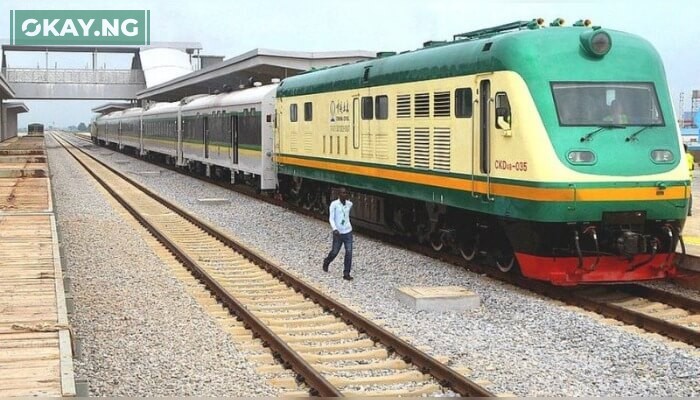The Chinese construction conglomerate, China Civil Engineering Construction Corporation (CCECC), has officially announced the commencement of its self-operated rail freight service connecting Lagos and Ibadan, okay.ng reports.
The inaugural dispatch of this service occurred in late March, a milestone signifying “the official commencement of commercial freight operations,” as confirmed by John Zhao, Chief Representative and Executive Director of CCECC, via an official statement on X.
This new logistical undertaking employs a cross-border rail transport model, with the initial train originating from the Ajuba Bonded Terminal. The cargo was efficiently conveyed to Apapa Port in Lagos for unloading. Subsequently, the rail service facilitated the return journey by loading import containers destined for the Ajuba Terminal. This establishes a comprehensive, bidirectional logistics chain, effectively catering to the movement of both import and export commodities.
The introduction of this rail freight service has garnered positive commentary from industry experts. Professor Frank Ojadi, a distinguished professor of operations management at the Lagos Business School, underscored the potential national benefits, stating, “The more cargo that can be moved by rail, the better for the country’s productivity, efficiency, and overall cost reduction.” This perspective is further supported by Muda Yusuf, CEO of the Centre for the Promotion of Private Enterprise (CPPE), who characterized the development as a significant step towards enhanced operational efficiency and reduced logistical expenditures.
While acknowledging the positive implications, industry analysts have also noted existing limitations. The current operational scope of the service terminates in Ibadan, a geographical constraint that experts suggest may impede the full realization of its potential impact. Mr. Yusuf highlighted that a substantial volume of cargo originating from the ports is destined for regions beyond Ibadan, including the eastern and northern parts of the country. He further emphasized the strategic importance of incorporating fuel transportation via rail to alleviate the persistent logistical challenges associated with its current road-based transit.
Despite these identified limitations and potential operational complexities that may affect widespread adoption, the launch of CCECC’s self-operated rail freight service represents a notable development in Nigeria’s transportation infrastructure.













